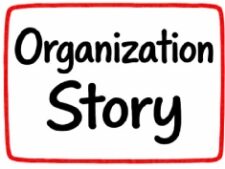Rules are good for every organization. They ensure that most activities are done within a framework. They serve as a guide to all. However, in several smaller organizations, one should see how rules can be flexed (within a right framework and context) and how empowerment and training is important for this. When this is not done, a mid-level / junior employee is the one that usually faces the wrath of customers / visitors / clients. And importantly the clients then talk ill of the organization as a whole.

In a way they are right. The employee concerned is doing what he or she is trained to do. One can’t blame them. But they are the people who get the flak and it causes a lot of stress. Especially if they themselves see the need for flexibility but have no power to act on this.
At the hospital library where I worked decades ago, my position actually came with very little authority. But I had a talk with my boss and he told me to go ahead and carry out certain things without taking his permission every time.
One such case was allowing outsiders (usually doctors / residents from other hospitals or medical colleges) to use the library. The written rule was that this required the permission of my boss – he was “in charge” of the library. He was also a busy Cardiologist who was available only half day in the hospital.
Another was about outsiders needing photocopies after 5:30 pm if they visited then. I told my boss that I would permit visitors based on their displaying valid I-cards or being introduced by one of our own employees. And I would permit them to take material out to the nearest photocopy shop – again – with some security item from them.
These are instances of institutions needing to make the right rules with enough flexibility. Most often they do not.
When they do not – instead of cribbing about it – we need to take the right steps – discuss it and make it happen. Yes – sometimes the boss may be unreasonable. (Thankfully mine was not. I suspect he was relieved that I was ready to shoulder more responsibilities!) If he or she is, we need to wait and find other ways of making the needed change. Maybe discuss the issue with several people, and ask for ideas. We need to make different approaches. Cribbing gets us nowhere
Even today, I am happy with the changes I made then! And at QMed my colleagues are all people who take responsibility to make several decisions. They offer several useful ones. And when young employees or interns have been with us, the first thing we tell them is they must share thoughts about what they think the organization can do – this in case they think of needed changes!



